ACB'S BLOG> ACB IS ON FACEBOOK <
ORDINARY AND EXTRAORDINARY GENERAL MEETINGS OF ACB,
FEBRUARY 16th, 2024, SAINT-JULIEN-LES-VILLAS
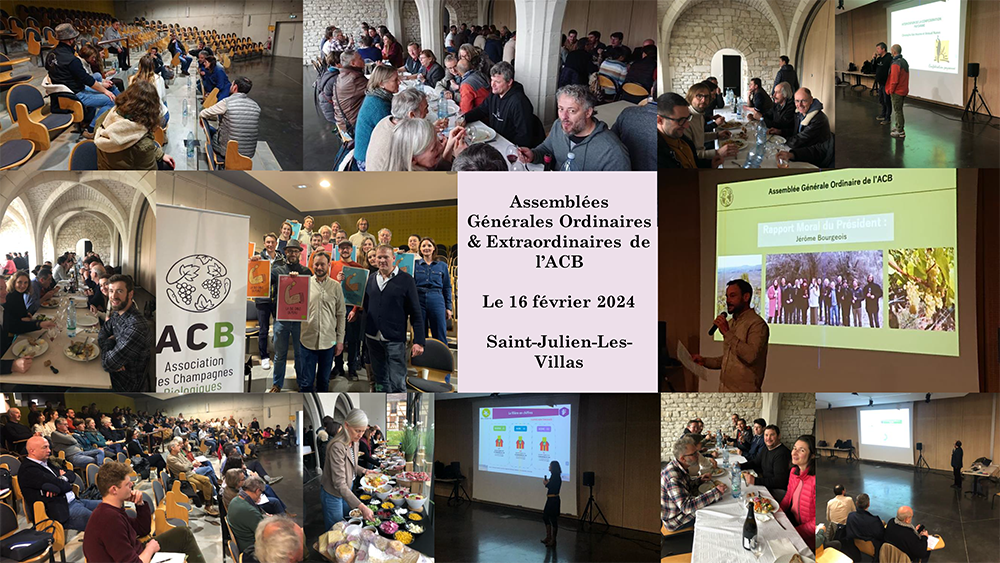
STUDY TRIP TO ALSACE - JANUARY 17/18/19, 2024
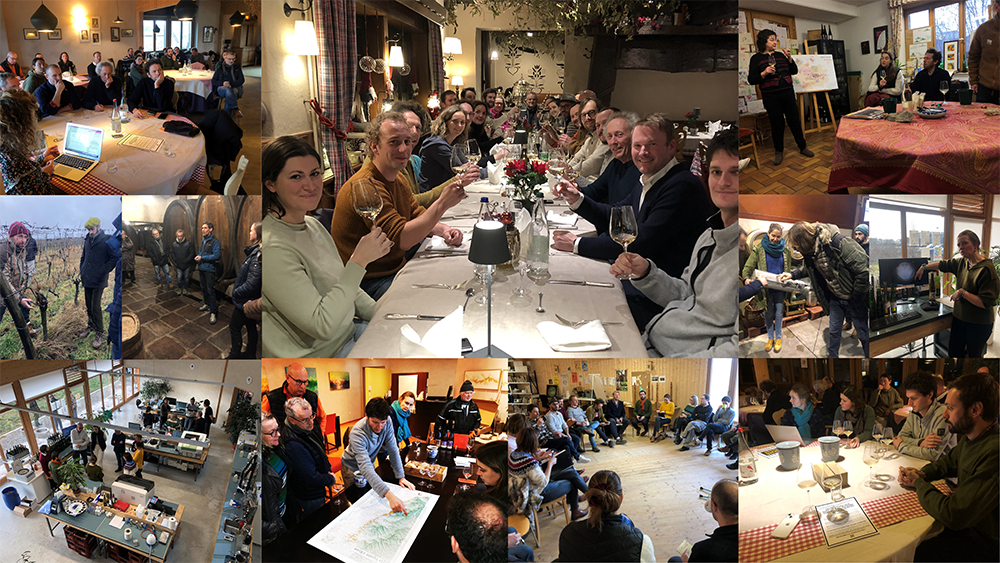
CINE-TASTING WITH THE FILM “VIGNERONNES” BY GUILLAUME BODIN, WEDNESDAY DECEMBER 13th, 2023, IN PARTNERSHIP WITH THE CINEMA LA COMÉTE IN CHALONS-EN-CHAMPAGNE
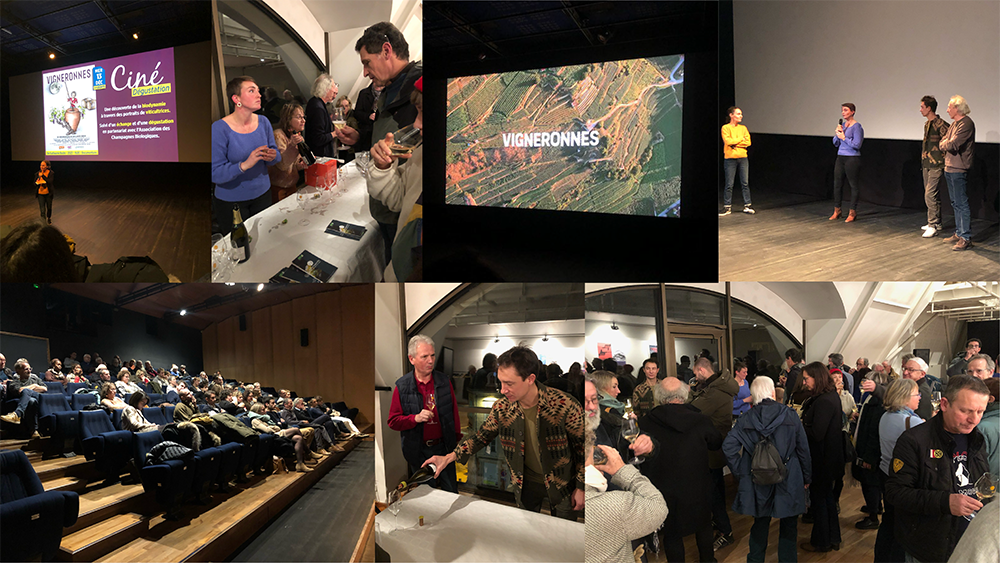
INAUGURATION OF THE FIRST WORKSPACE OF THE ORGANIC CHAMPAGNES ASSOCIATION,
TUESDAY DECEMBER 12th, 2023
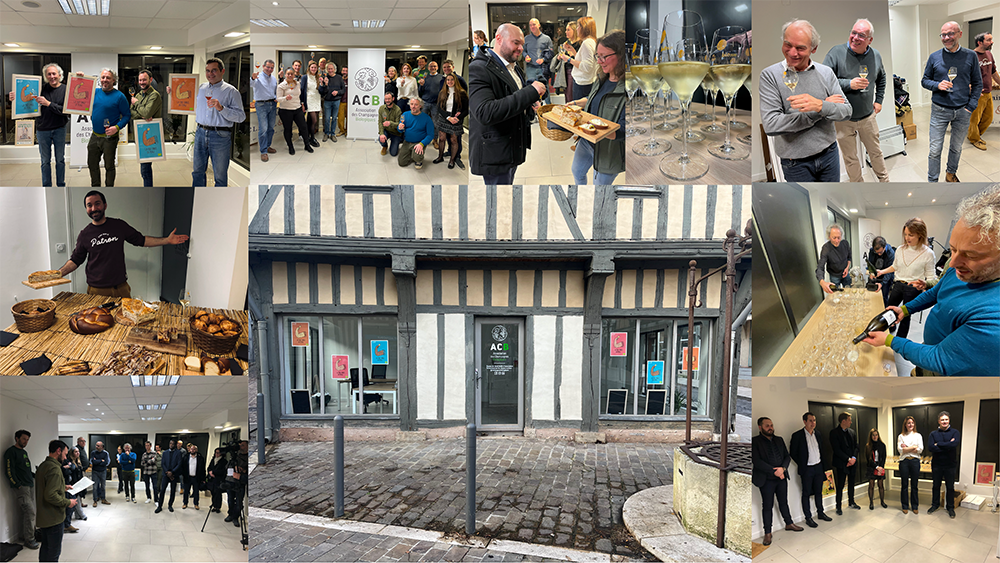
OPEN ORGANIC VINEYARD “COMPOST IN ORGANIC VITICULTURE”, AT WINEMAKER ANDRÉ HEUCQ,
IN CUISLES (51), ON NOVEMBER 23td, 2023
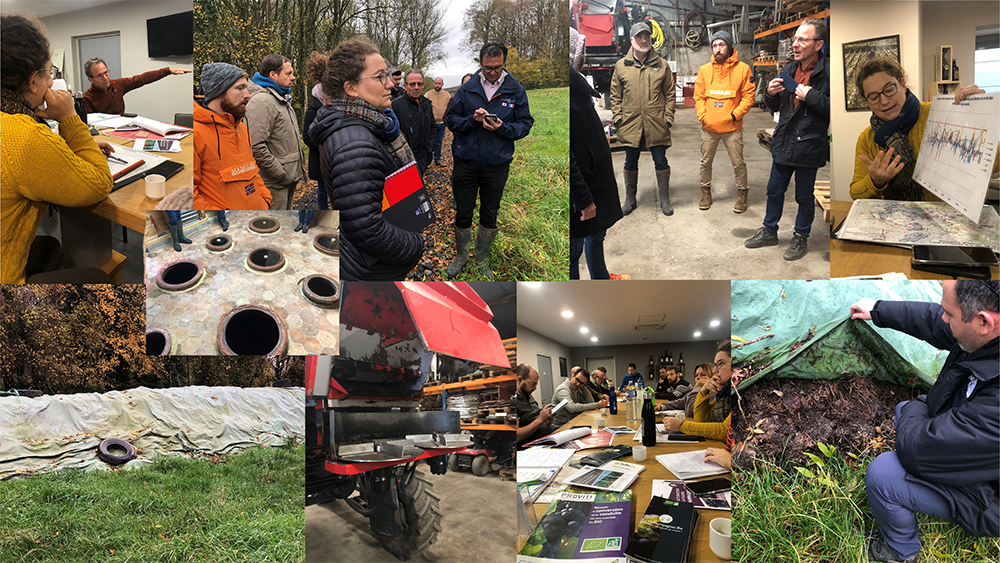
OPEN ORGANIC VINEYARD “ORGANIC VINIFICATION”, AT WINEMAKER FLORENT DOUGE,
IN NEUVILLE-SUR-SEINE (10), ON NOVEMBER 6, 2023
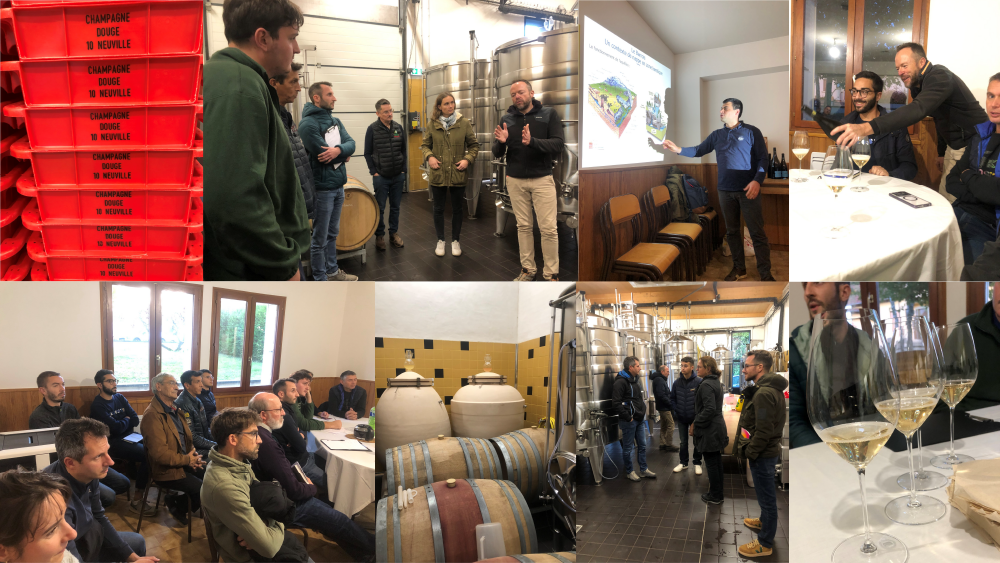
FIRST EVENTS “DISCOVERY OF THE ORGANIC VITICULTURE SECTOR IN CHAMPAGNE” IN AUTUMN 2023,
IN NESLE-LA-MONTAGNE (02), VAUDEMANGE (51) AND ECUEIL (51), WITH ORGANIC WINEGROWERS
SÉBASTIEN SIMON, PIERRE DÉTHUNE AND CHRISTOPHE LEFÈVRE - OCTOBER 2023
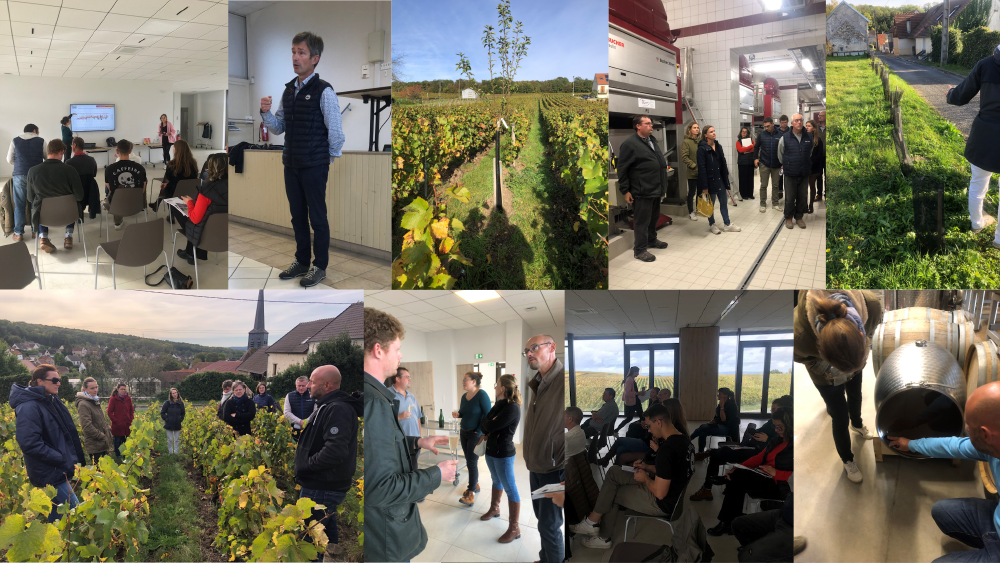
ACB PARTICIPATION IN THE GAB 10 GENERAL ASSEMBLY IN TROYES ON FRIDAY OCTOBER 6th 2023
& AT L’ÉCOL’AUBE FESTIVAL IN SAINT POUANGE ON SATURDAY OCTOBER 7th, 2023
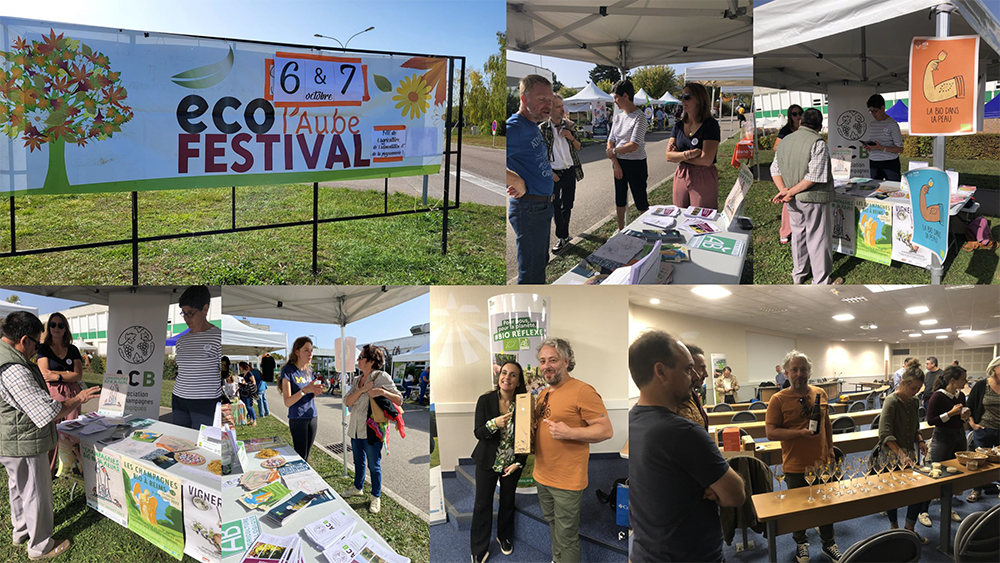
ORGANIC CHAMPAGNES PRESENT AT THE CHALONS-EN-CHAMPAGNE AGRICULTURAL FAIR
ON SEPTEMBER 4th, 2023
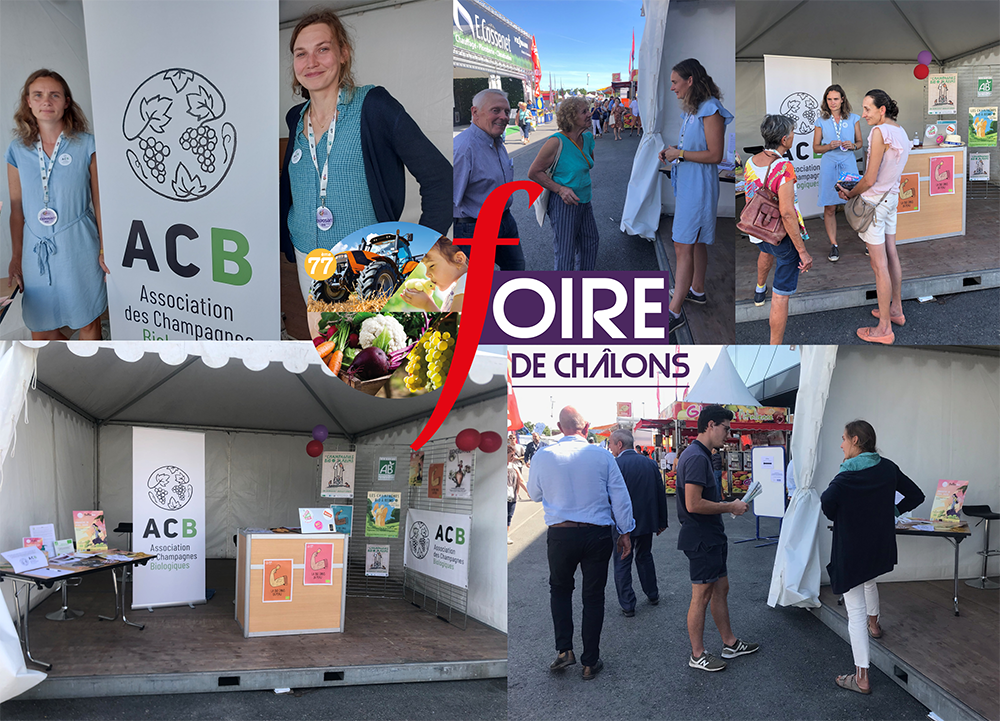
ACB'S 25th BIRTHDAY PARTY, ON JULY 22th, 2023
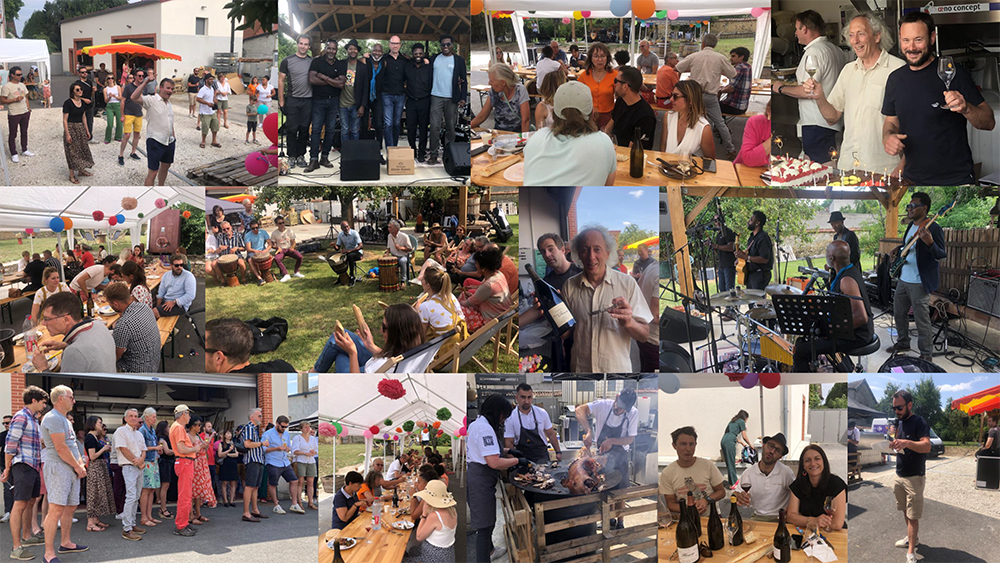
OPEN ORGANIC VINE "DISCOVERY OF A DISTILLERY COMMITTED TO ORGANIC",
AT DISTILLERIE BONVALET, PIERRY (51), ON THE JUNE 27th, 2023
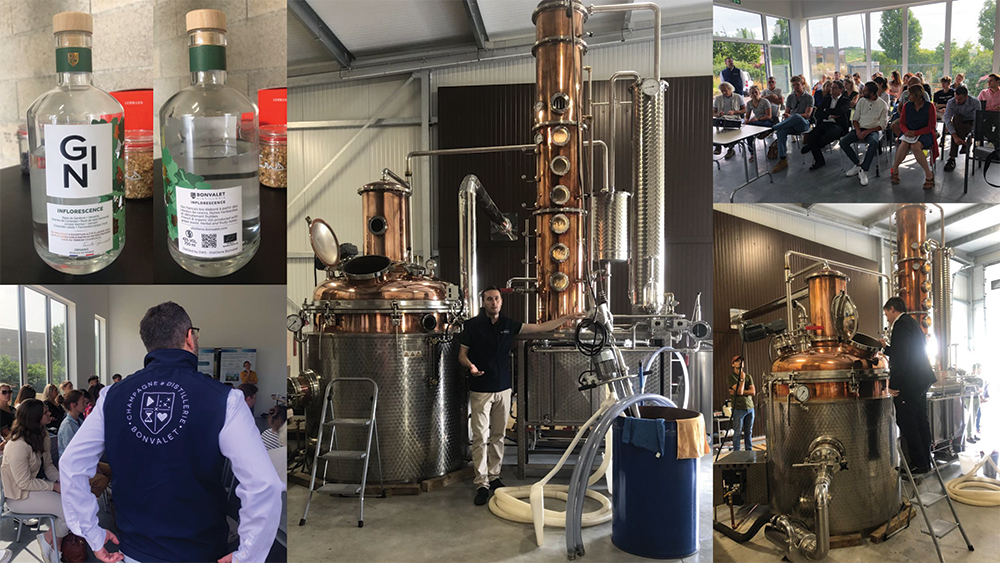
FEEDBACK ON ACTIVITIES FOR ACB MEMBERS, ORGANIZED ON MARCH 2023
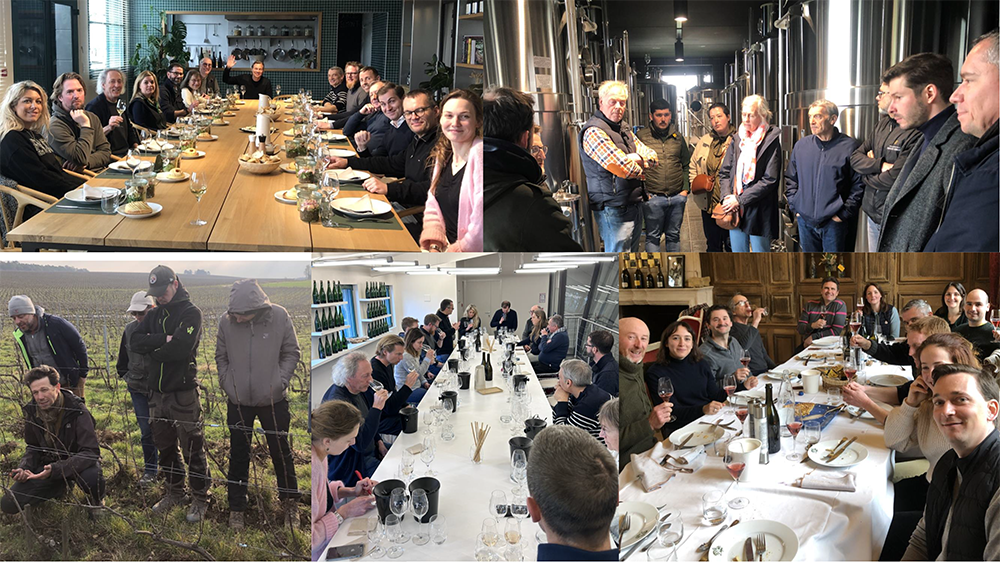
OPEN ORGANIC VINE "ORGANIC VINIFICATION", AT THE WINEGROWER LAURENT VAUVERSIN (51),
IN OGER, ON FEBRUARY 28th, 2023
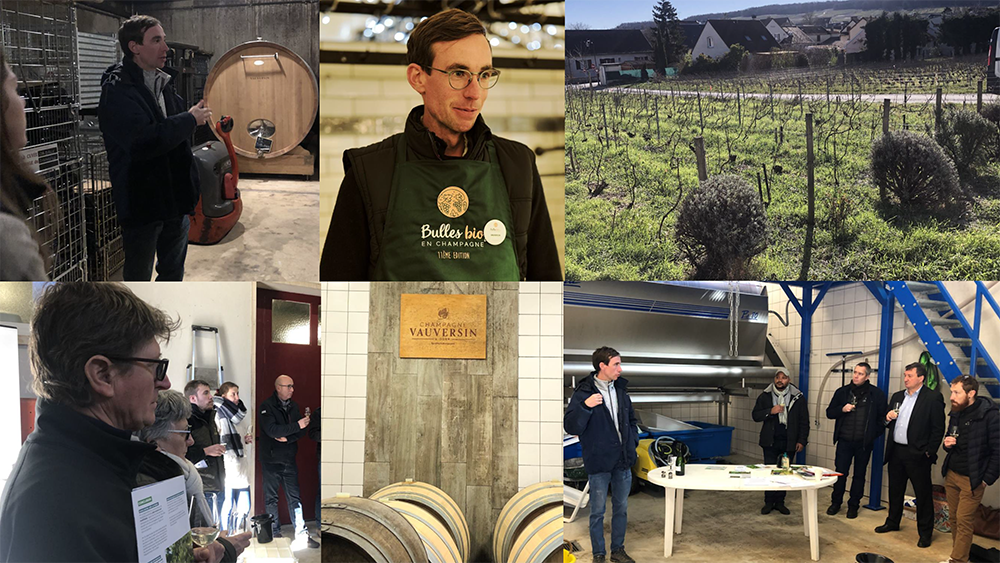
THE ACB'S TRADITIONAL GENERAL ASSEMBLY WAS HELD,
IN VERTUS, IN THE MARNE, ON FRIDAY FEBRUARY 10th, 2023
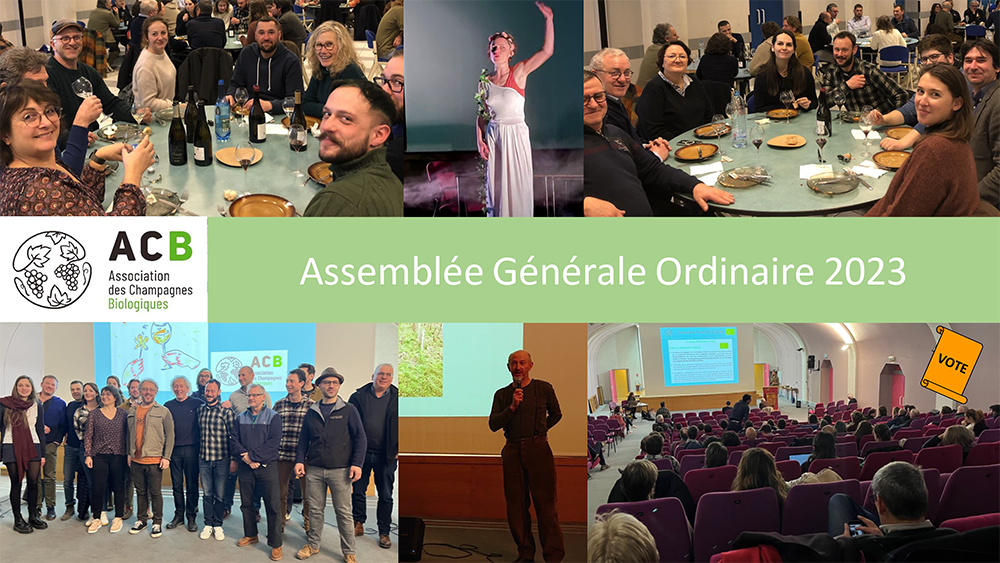
PLENARY TECHNICAL COMMISSION, AT DOMAINE BARBICHON, IN GYE SUR SEINE, ON DECEMBER 2th, 2022
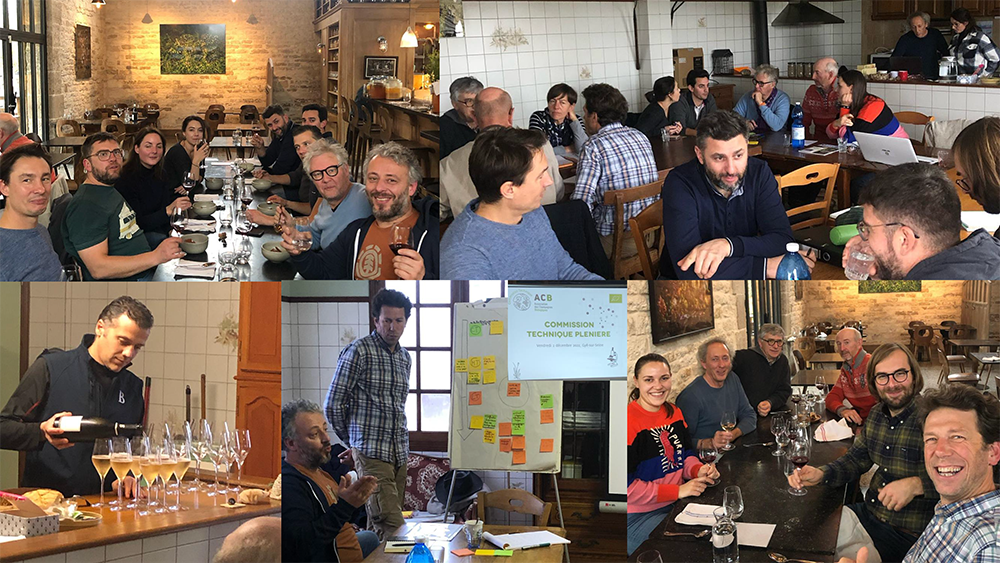
TESTIMONY OF WINEGROWER, LAURENT BENARD, DURING THE MORNING
"DISCOVERY OF THE ORGANIC CHAMPAGNE SECTOR", IN AŸ, ON FRIDAY NOVEMBER 18th, 2022
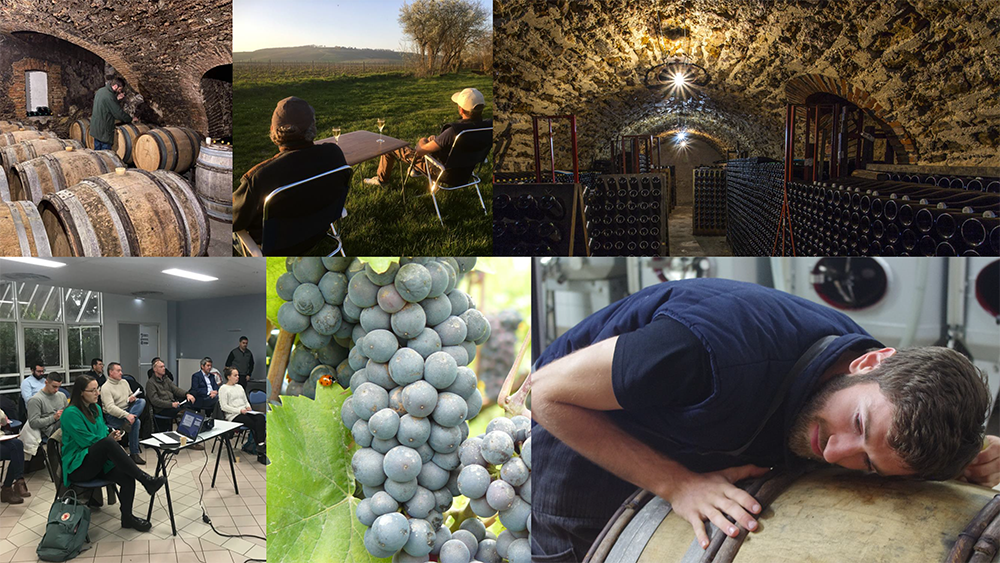
OPEN ORGANIC VINE "DISCOVERY OF ORGANIC VITICULTURE",
AT THE WINEGROWER GUILLAUME MATEAUX IN BONNEIL (02), ON NOVEMBER 8th, 2022
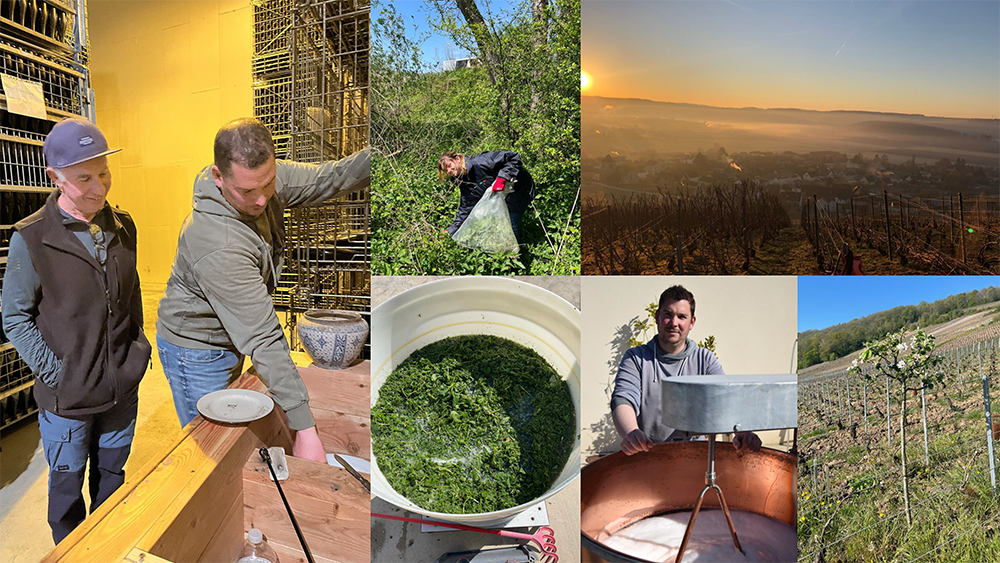
OPEN ORGANIC VINE "BIODYNAMIC COMPOST" AT WINEGROWER ALAIN RÉAUT,
IN COURTERON, CÔTE DES BAR, ON OCTOBER 17th, 2022
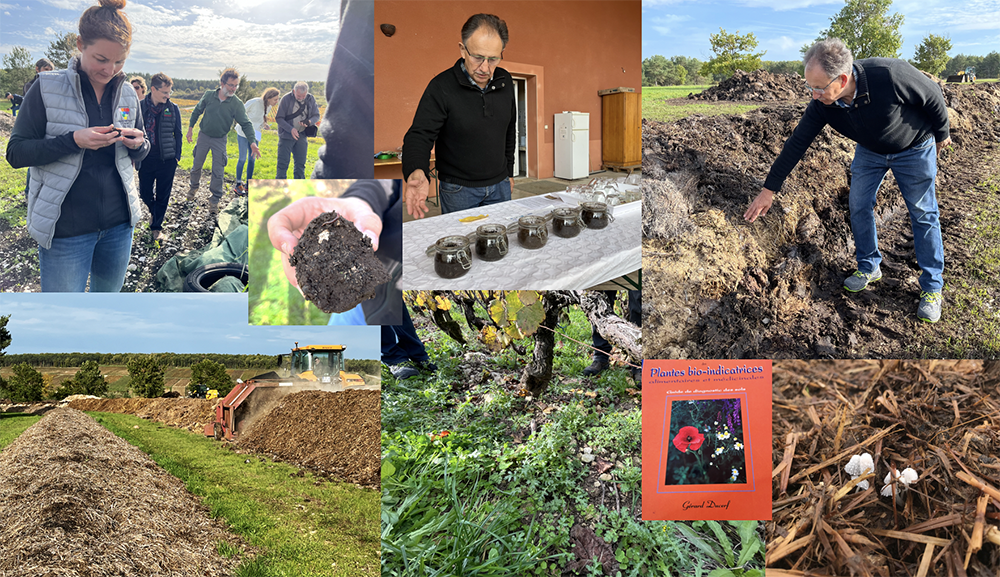
ACB SUMMER DINNER, ON JULY 22th, 2022
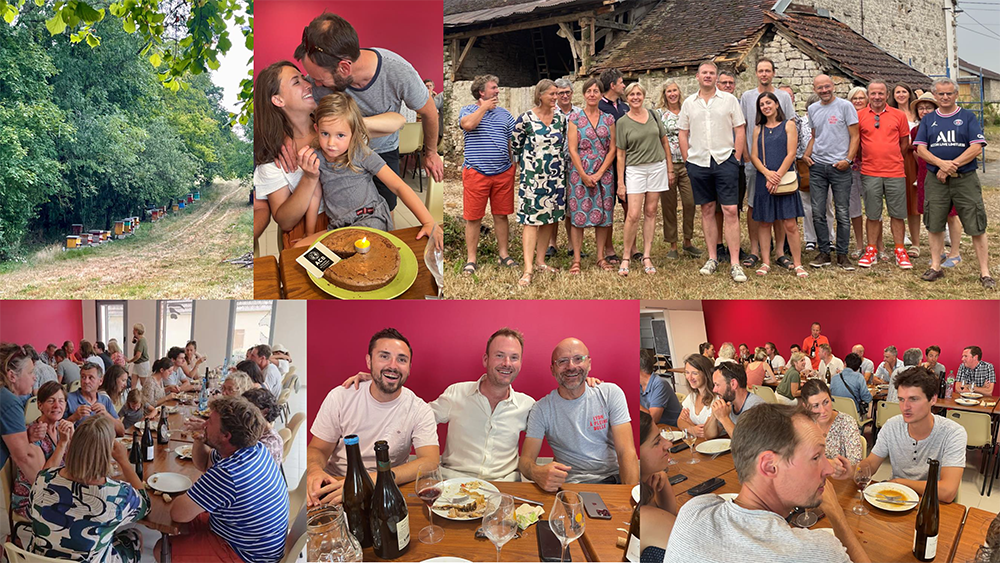
ON JUNE 2022, WEDNESDAY 22th, "BIODIVERSITY” OPEN ORGANIC VINE AT BONNET-PONSON DOMAINE,
WITH THE LPO CHAMPAGNE-ARDENNE
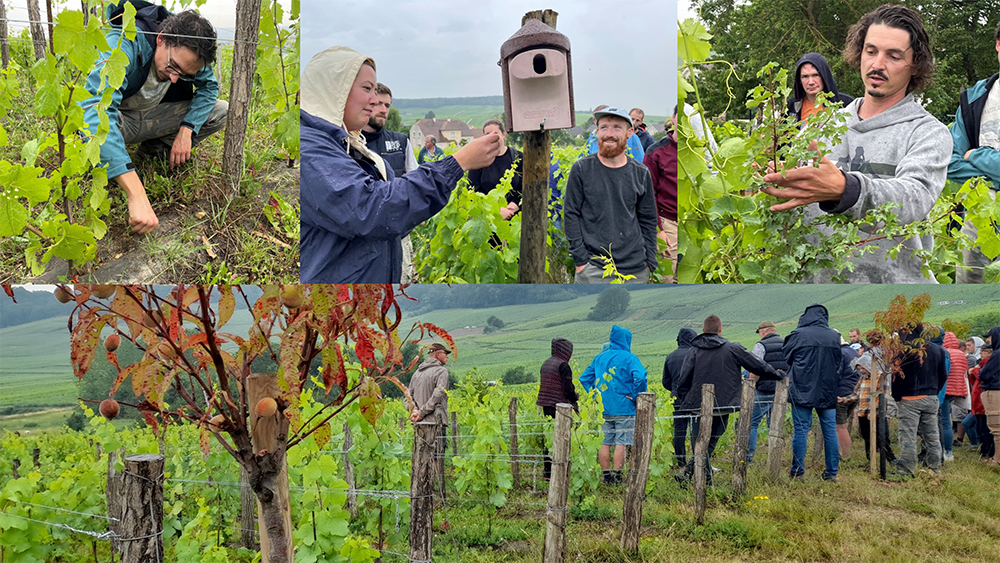
ON JUNE 2022, THURSDAY 16th, “BRAIDING” DEMONSTRATION AT ALEXANDRE LAMBLOT IN JANVRY (51)
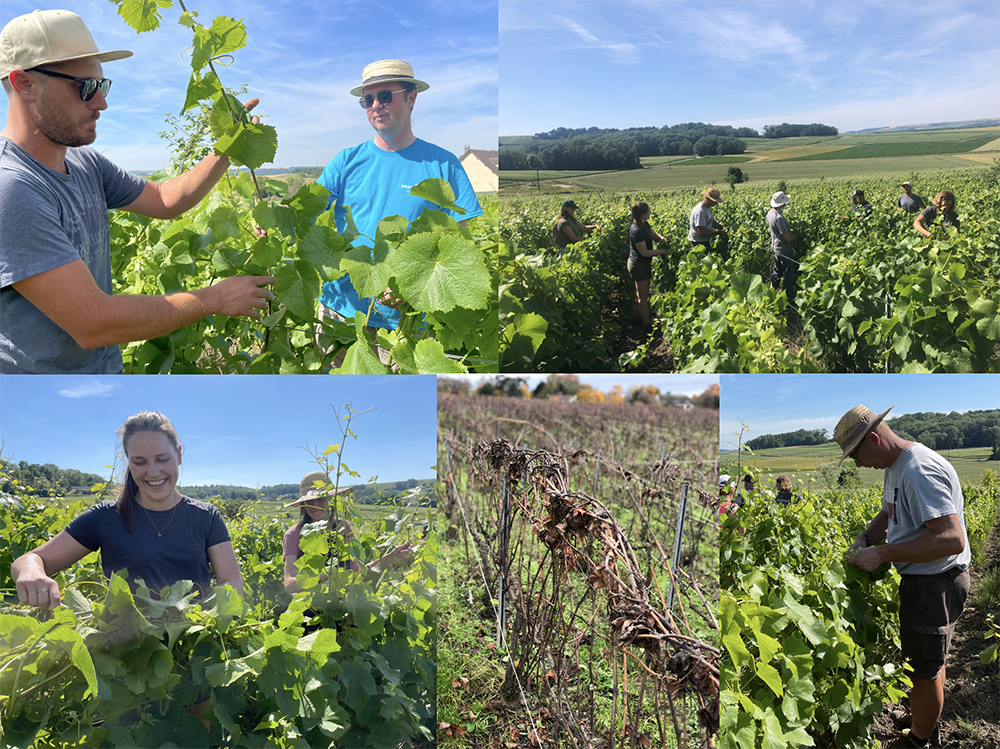
OPEN ORGANIC VINEYARD "CONVERSION TO ORGANIC VITICULTURE" AT THE WINEGROWER FLAVIEN NOWACK,
ON APRIL THURSDAY 28th 2022, IN THE MARNE VALLEY
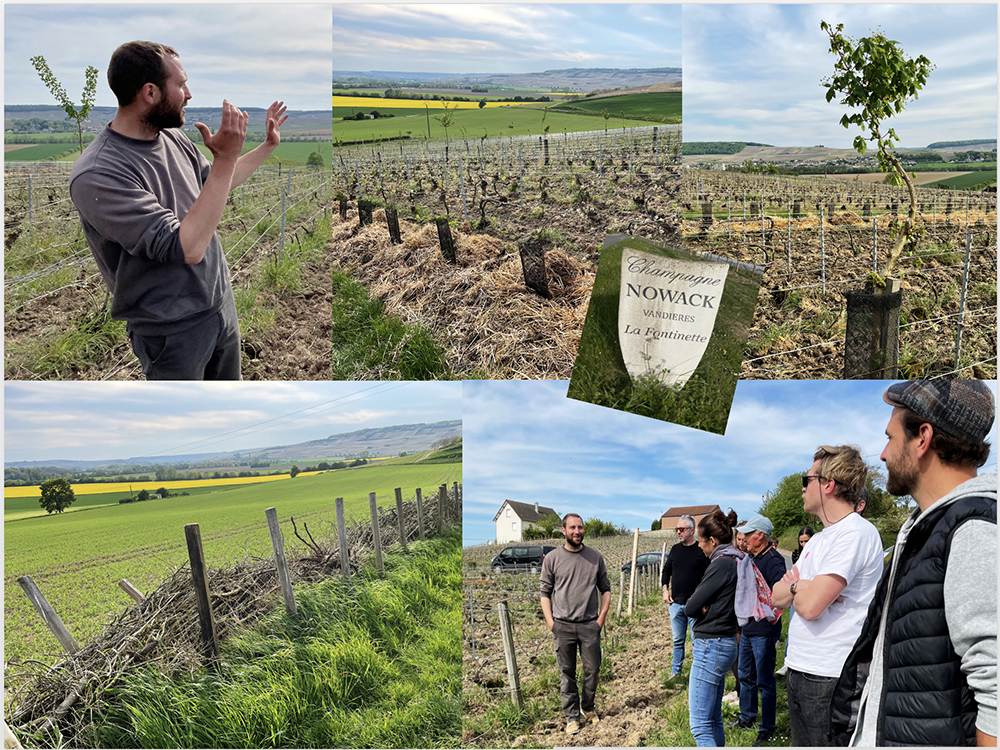
ON APRIL WEDNESDAY 27th 2022, ANIMAL TRACTION DAY, AT DOMAINE RUPPERT-LEROY
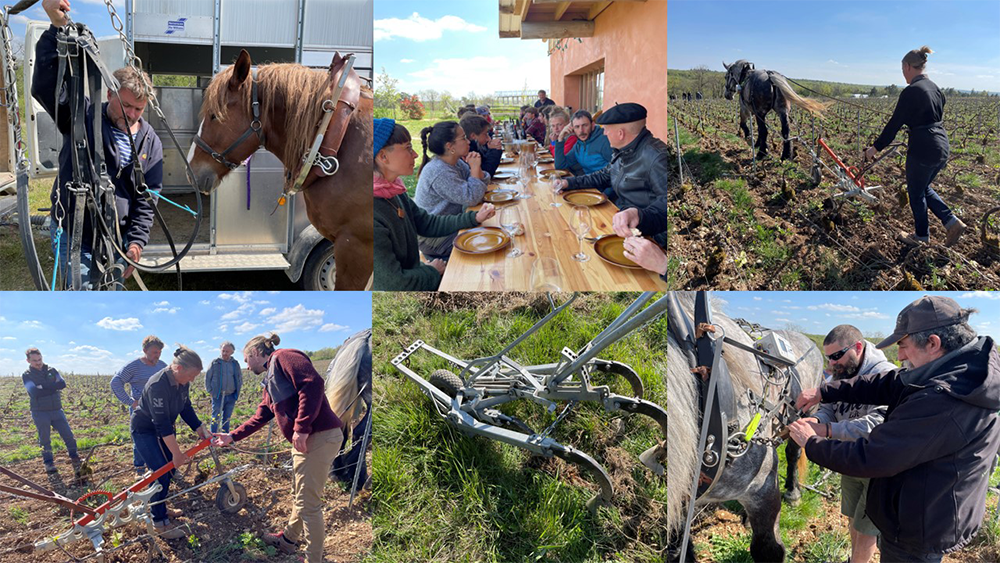
ACB GENERAL ASSEMBLY, AT SAINT-JULIEN-LES-VILLAS (10),
ON FEBRUARY FRIDAY 25th 2022
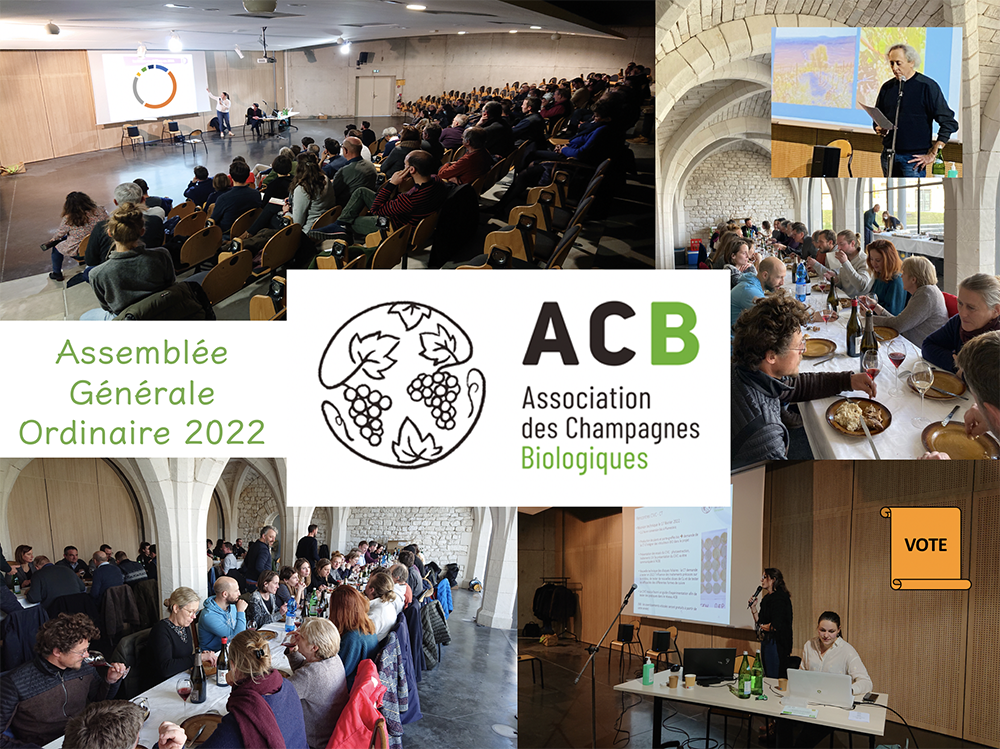
> Find the Moral Report of the President, Pascal Doquet <
OPEN ORGANIC VINEYARD "ORGANIC VINIFICATION" AT FRANCIS BOULARD & FILLE DOMAINE,
THE JANUARY 13th 2022
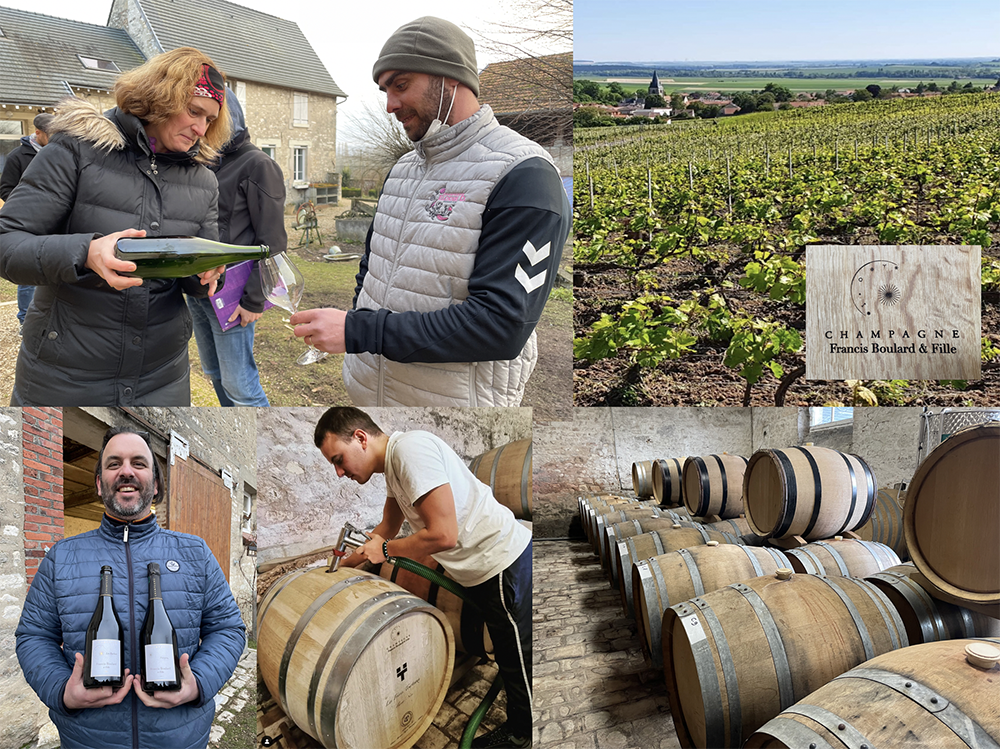
ACB SUMMER MEAL, JULY 24, 2021
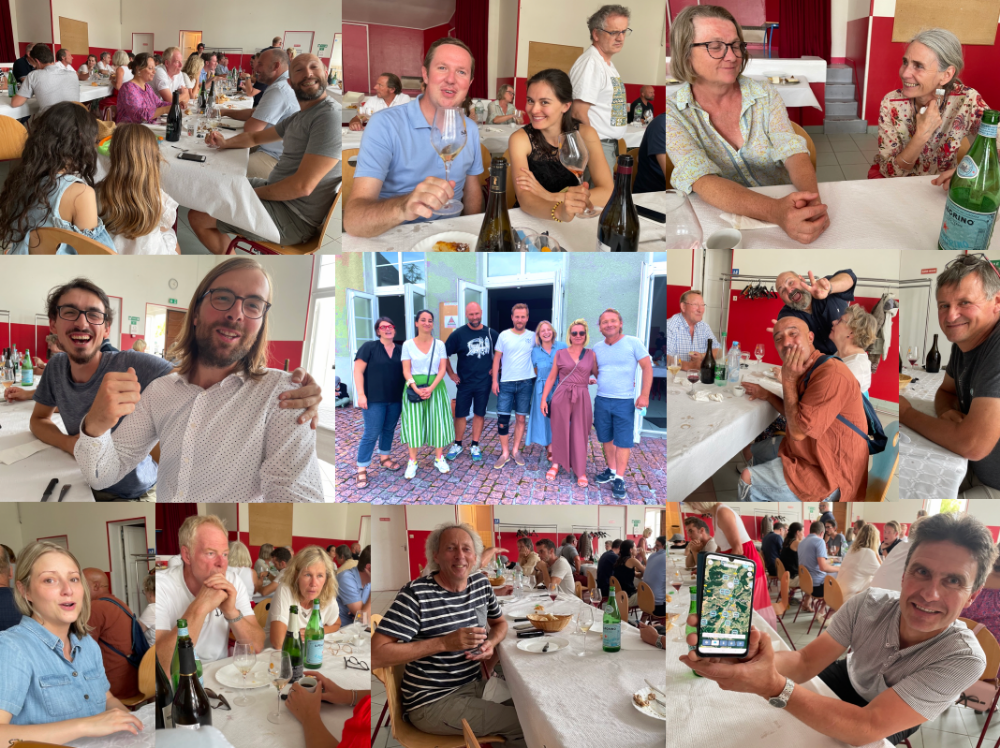
As every summer, the members gathered for a festive meal to celebrate the end of the works accompanying the vegetative season, before the summer break. This year, Magali and Jérôme BLIN invited us at TRÉLOU-SUR-MARNE in the Aisne, just on the border of the Marne. They have reserved for this the Village Hall, in front of their new cellar, where a rotisseur prepared for their guests his traditionnal grilled pork and vegetables. The participants brought their own culinary specialities to complete the formula and, of course, the wines they wanted to taste.
Many thanks to Magali and Jérôme for organising us this good moment of conviviality; a break that allowed us to exchange and share, after such a trying growing season, an horrowing experience even for veterans !
OPEN ORGANIC VINEYARD ON MANAGEMENT OF SLOPING VINEYARDS, WITH FLAVIEN AND BAPTISTE RUTAT,
THE JULY 1st 2021, VERTUS - CÔTE DES BLANCS
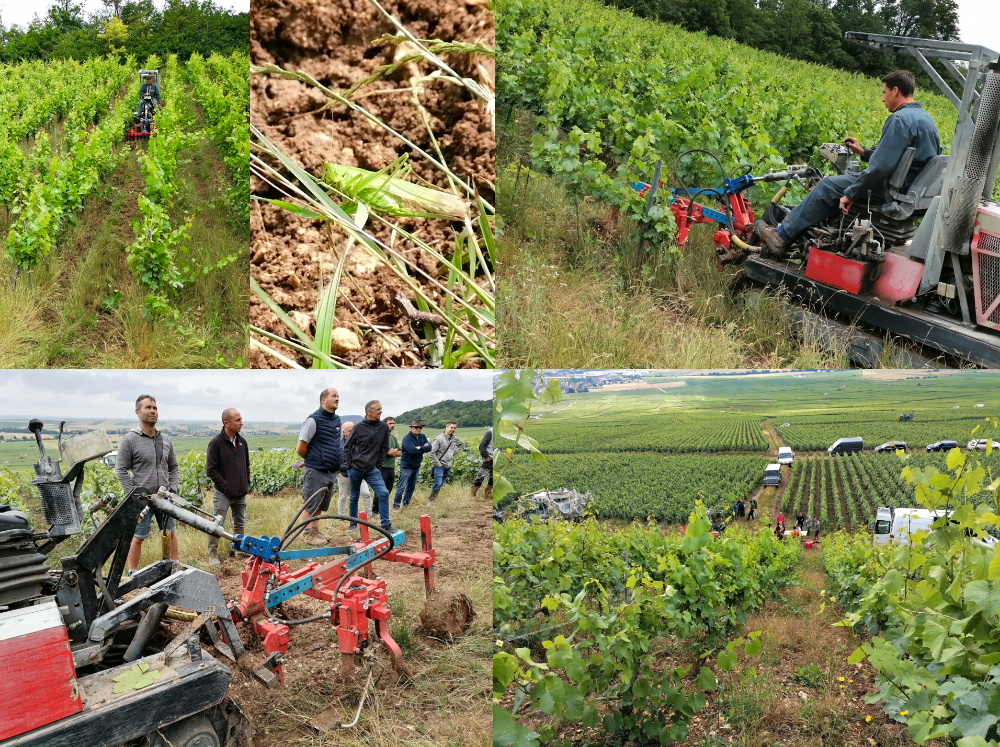
OPEN ORGANIC VINEYARD ON CONVERSION TO AB WITH JÉRÔME AND CHARLOTTE BOURGEOIS,
THE JUNE 25th 2021, CROUTTES-SUR-MARNE (02)
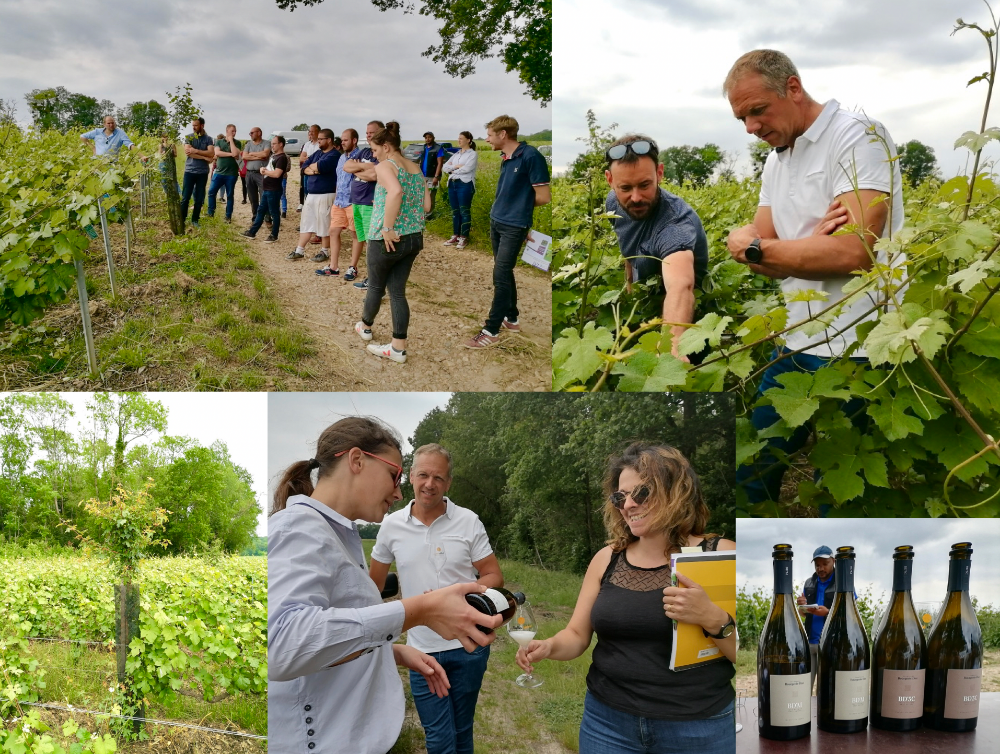
CLEAR WINE 2020 TASTINGS, ON 20th AND 26th, MAY 2021
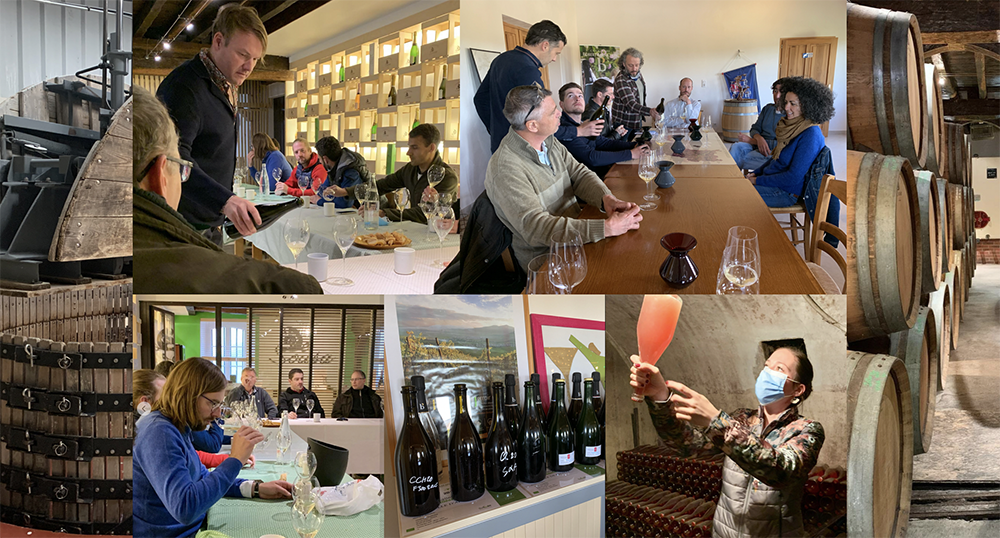
DISCOVERY OF THE ORGANIC CHAMPAGNE INDUSTRY WITH JEAN-PIERRE VAZART IN CHOUILLY
On 11th TUESDAY, MAY 2021
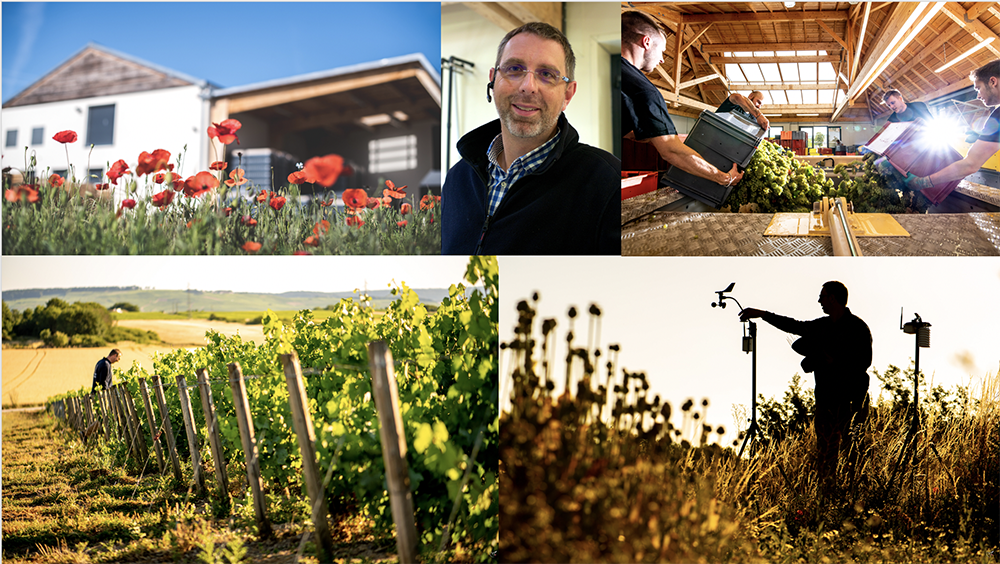

Open Organic vineyard on Moving Towards Organic Practices at Alexandre Chaillon
On 9th Tuesday, March 2021
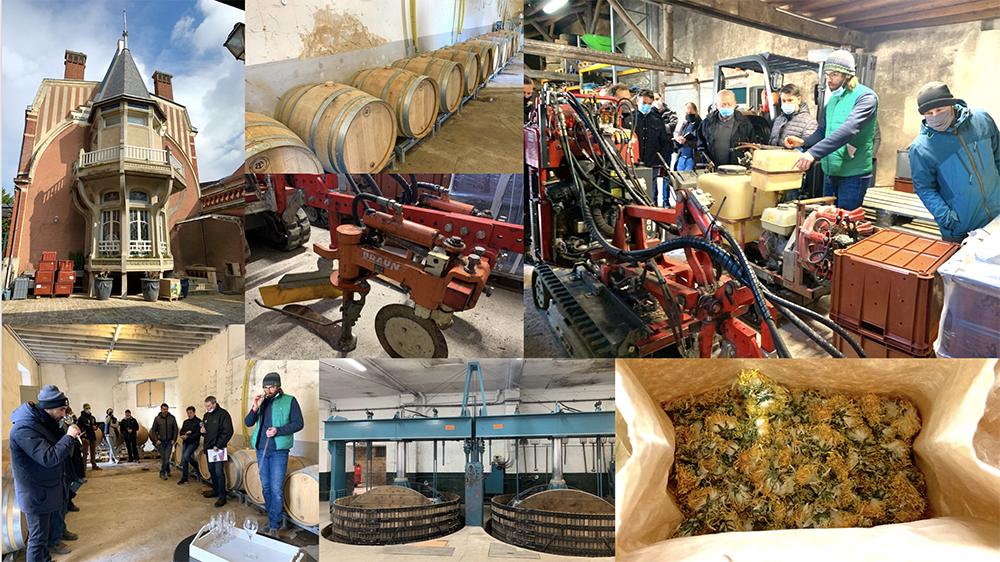
Open Organic vineyard on wine making in AB at Domaine Jeaunaux-Robin
On 18th Thursday, February 2021
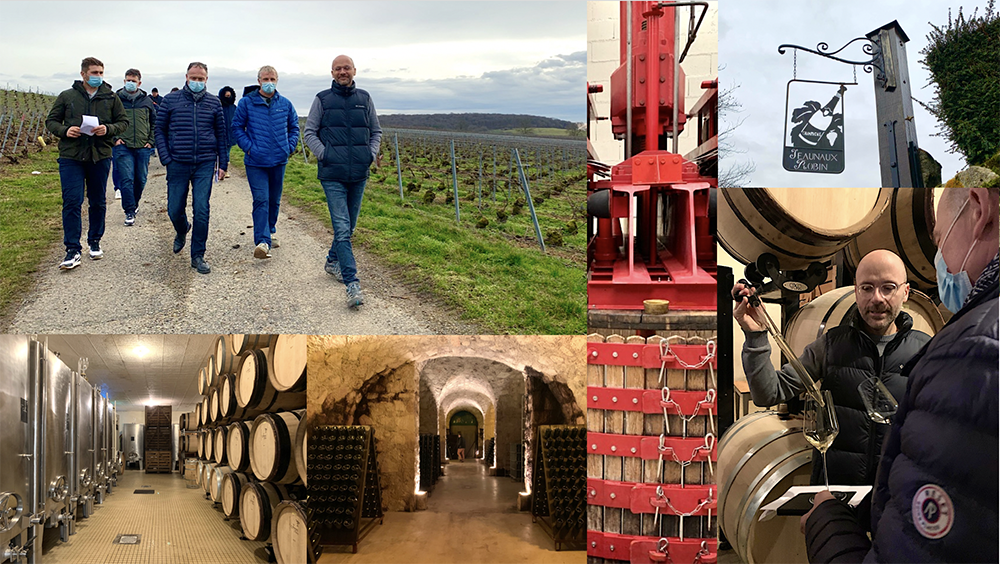
ACB General Assembly - On 12th Friday, February 2021
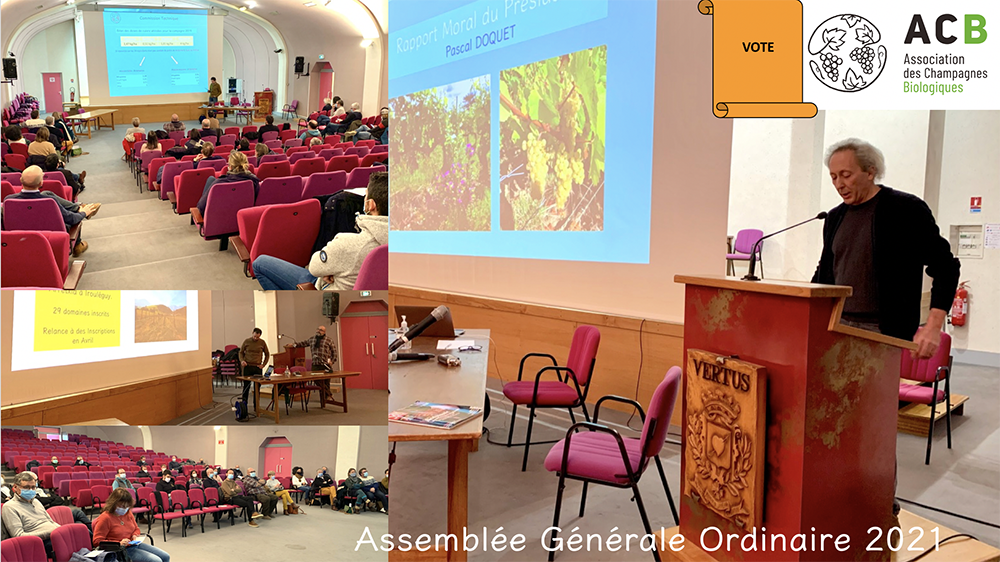
Welcome day for new members - On 29th Friday, January 2021
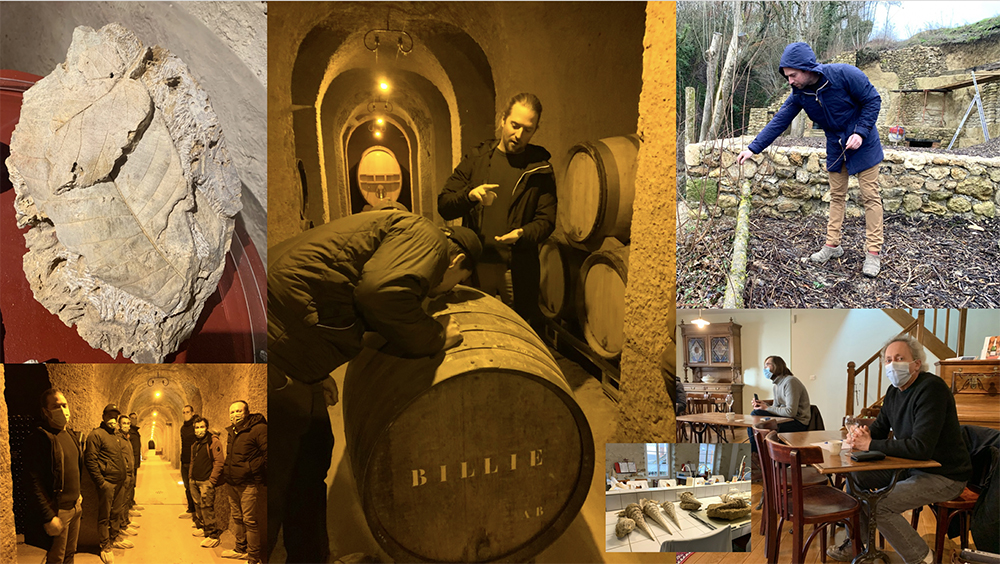
Open Organic vineyard on wine making in AB at Domaine Bonnet-Ponson - On 15th Friday, January 2021
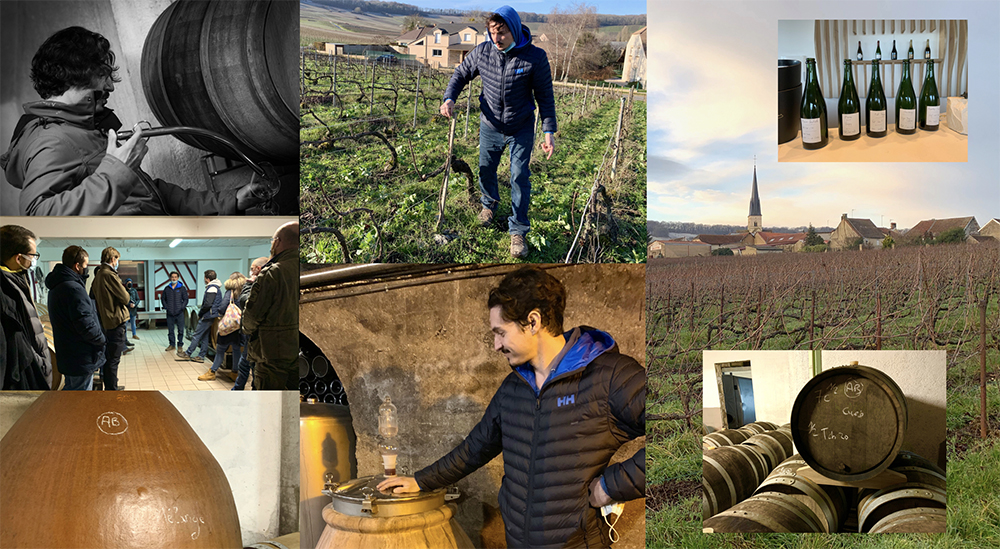
MEETING : " HOW TO PROMOTE BIODIVERSITY IN VINES ?"
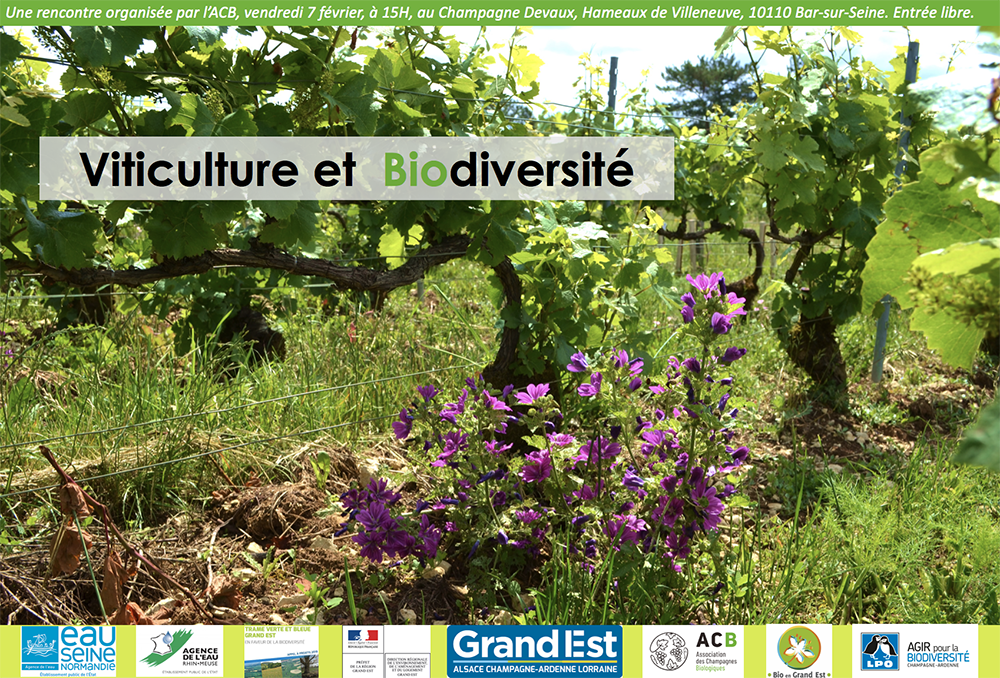
Meeting "Viticulture et Biodiversité"
Freburary, on friday 7th 2020 - at 3pm
Place : Champagne Devaux
Hameaux de Villeneuve, 10110 Bar-sur-Seine
> Inscriptions here <
CONFERENCE ON COPPER ON THURSDAY 18th, OCTOBER 2018
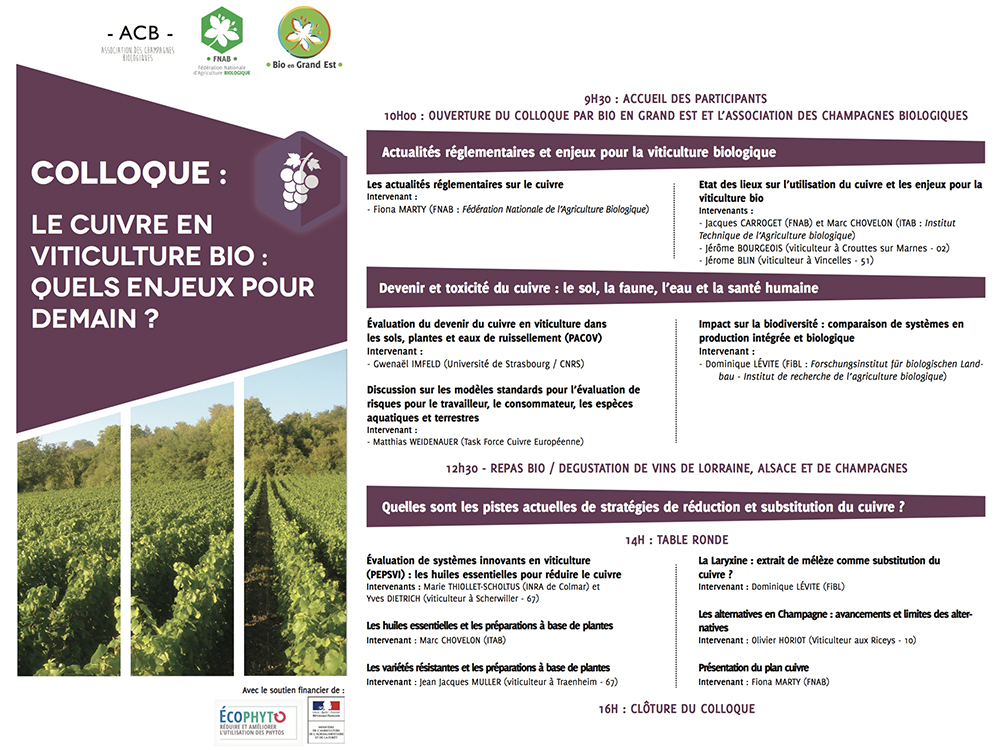
In Organic Viticulture, copper is the only authorized and effective mineral product to fight against mildew. Other fungicides, often suspected to be carcinogenic, mutagenic and reprotoxic are banned in organic agriculture as are all chemical pesticides.
As part of the process of European re-registration of the active substance Copper, the EFSA, the European agency in charge of the report, advocates a further reduction of the authorized dose to 4 kg / ha for all productions, without the possibility of multi-year adjustments. This recommendation will be put to the vote of the Member States this autumn.
Alarmed by this regulatory project, the Association of Organic Champagnes, ACB, and Bio en Grand-Est carried out a survey on the use of copper in organic viticulture in Champagne for the years 2012-2017. This survey reveals that organic viticulture in Champagne will not survive if this new regulation becomes law.
Historically, the doses used have already been greatly reduced in all wine regions. The specifications of organic farming limit the dose to 6 kg / ha / year of copper metal on average calculated over five years (principle of adjusting).
The reduction of the authorized dose to 4kg / ha, will simply make it impossible to manage the vineyards in years with high mildew pressure for the organic winegrowers of Champagne.
This regulation, which would also lead to the loss of organic viticulture in other wine regions such as Bordeaux, Charentes, Loire, Center, Burgundy ..., seems in complete incoherence with the public will to reduce the environmental impact of agriculture. Organic farming is by far the most efficient in terms of usage of chemical products.
It is in this alarming context, that the ACB, Bio en Grand-Est and the FNAB, have decided to organize a conference on Copper in Organic Viticulture. The aim is to inform and alert the entire wine industry, the citizens, and public authorities, on the harmful consequences of the draft European regulation for organic viticulture and the environment in our country.





































